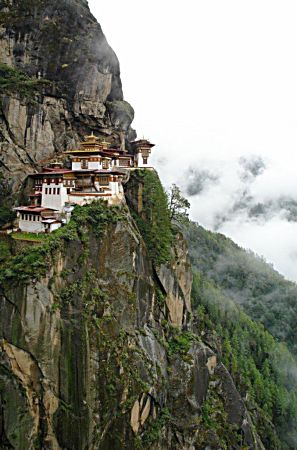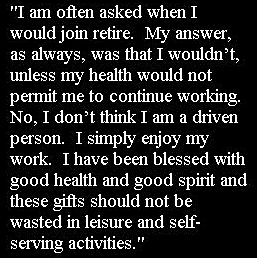
SOME FUND managers and analysts – at least those I have met - are so young they couldn’t have lived through, at various times, a bull market and a crash. When a mutual friend introduced me to fund manager Randy Kwei, I knew he was an exception.
He looked to be in his mid- to late 50s. Over dinner at IndoChine by the Singapore River, he let on that he had long sailed past our estimated range. But he didn’t want to be more specific than that.
Randy, who is based in Hong Kong and has an interest in Singapore stocks, acknowledged, not without a glint of pleasure, that many people have told him that he looked far younger than his age. The inevitable question we had in double-quick time was: What’s your anti-aging secret?
Part of the answer had quietly emerged as he flipped through the menu and ordered a vegetarian dish as his main course, rather than some fat-dripping red meat. Randy is a vegetarian. And, as he explained, he is blessed by that ultimate influence on one’s longevity: genes. His father lived past 90 and his mother lived till 88.
His own athletic pursuits from an early age have contributed in no small part to his relative youth and vitality today. He picked up tennis more than 30 years ago, and has been playing regularly ever since. Through hiking and skiing over many years, he has enjoyed the great outdoors while living in the United States. He still goes skiing whenever he can when he is overseas.
His gym routine includes lifting weights, working on the Nordic track, running on the treadmill, toning his body, arms, knees and leg muscles. To supplement the workout, he takes up Iyenga yoga. It comes in handy when his nerves start getting frayed by the volatility of stock markets. Things were especially challenging for him during the Asian financial crisis, he remembered.
“It was in 1998 during the tail end of the Asian financial crisis that I sought an exercise that would calm me down as markets lost altitude. I was diagnosed with high blood pressure – the result of the high level of stress I had to deal with every day.”

His annual yoga retreat has taken him to exotic locations, including hiking up to the famous Taktshang Monastery in Bhutan which is perched on a mountain cliff about 3,000 meters above sea level.
The fund that he manages has tested interesting heights too. Over the past 10 turbulent years, it delivered a compounded return of 12 per cent per year. “Since inception in 1994, the fund has outperformed the regional benchmark by over 100 per cent. It’s a track record that I am very proud of,” he said.
He is proud also of his daughter, Kathy, who owns a fledgling handbag business bearing her name and which has received orders from such established high-end fashion powerhouses as Neimen Marcus and Nordstrom in the States, and Saks in the Middle East.
His son, Clarence, is the executive producer for both the People.com and the EW.com on-line magazines, which are the most popular weekly publications in the US.
When did you start investing and what led to that?
I started investing professionally back in 1987, six months before the US market crashed. It was my third career change – after information technology and banking. For several years before that, I was running a small Indonesian-based finance company in Hong Kong. You may recall that there was a banking crisis in 1985 in Hong Kong when bank funding of finance companies virtually dried up. I was looking for another source of revenue and I was attracted to the investment business.
What is the name of your fund, what is the value of its assets under management, its investment focus and, broadly speaking, who are your investors?
The fund’s name is JK Asian Invest, L.P. This fund’s size was about US$48 million going into 2008 but it has since declined due to the market downturn. Fortunately, we have not had any redemption through the turmoil. We focus our investing in the Asia ex-Japan region with prime weightings in Korea, China, Taiwan, Hong Kong and Singapore.
We are basically bottom-up stock pickers, seeking absolute return by investing in growth companies with world-class qualities at a sensible value. We use hedging to lower volatility. Our investors are US private families and endowment funds.
In terms of markets and industries, what are the key ones for your fund currently?
We are currently very much cashed up and hedged. In this unprecedented bear market which is still unfolding, we are very cautious and therefore are underweight in all markets and sectors against the regional benchmark.
Over the years, how has your investment approach changed?
My approach in research has been to try to find out as much about a company as possible. On top of the list of due diligence questions would be the background of the management team and the controlling owner. Then, I would want to understand the company’s competitive advantages, its market positioning, its earnings growth history and the strength of its balance sheet.
Of course, we are paid to look ahead and we need to have a good sense of the company’s sustainable growth prospect. The result of our careful work has produced a portfolio wherein its core holdings have an average holding period of four years. Finding fundamentally attractive companies is one of the two ingredients in a fund manager’s work.
Emerging markets are notoriously volatile such that a successful manager has to manage his portfolio actively in response to volatility, whether in a bull market or a bear market. Since I am very cautious, our fund generally produces a lot higher alpha in a down market than in an up market. I haven’t changed my approach of managing investments over the years.
What are two or three best experiences you have had in investing?
In private equity, my most successful as well as challenging project was to support the management buyout of Flex Inc in exchange for a controlling stake in the new entity which we named Flextronics Ltd. The entire transaction which was the largest buyout ever in Asia up to that time amounted to US$50 million, half of which was provided by bank financing. The re-organized firm has since developed into one of the leading electronics manufacturing service companies in the world.
In public equity investing, my best experience has been to buy in the middle of the Asian financial crisis in 1998 when one could scoop up solid companies at less than their book value. One of these was Lotte Chilsung, a leading non-alcoholic beverage maker in South Korea.
The stock was trading at less than book value and P/E of around 4X. Its business was unaffected by the financial meltdown in Korea and it was enjoying solid earnings growth. We bought the stock at 40,000 won per share and sold it four years later at around 600,000 won per share.

What have you done in the last six months as the market slumped?
I have been adding to hedges and selling stocks that had low earnings visibility. In September 2007 I had turned cautious and begun to raise cash so that by the end of the year, our fund had 16 percent of its assets in cash and hedges. Beginning in January 2008, Asian markets kept going down. I continued raising cash and hedges so that, by the end of August, the fund had 42 per cent of its assets hedged. Still, our fund has performed poorly this year even though it has beat the benchmark by a pretty wide margin.
What have you been telling your clients recently?
Hold onto to your cash. It is probably too late to sell but also a little too early to buy. Need to be patient. Looking beyond the valley, Asia is where one would want to overweight his equity commitment.
What has been a great (relatively speaking, of course) stock for you in the past six months?
I have been selling, not buying. No great idea at the moment.
Given whatever is currently known out there, what is your best guess for when Asian markets will hit bottom and recover?
I do not wish to hazard a guess. There are too many unknown factors that make any guess meaningless.

What are some lessons which you draw from the unfolding crisis in the US?
The global financial crisis stemmed from the real estate bust that began in 2006 in the US. However, the real culprits are easy money, a belief in a free market without adequate supervision and regulation, and unprecedented use of leverage to gain short-term profit while times were good. To me, the lesson that should be quite clear is that regulations should cover every sector that is connected to banking and finance industries, including rating agencies, auditing firms and exchanges.
We have learned that the so-called “financial engineering” innovation is nothing more than finding ways to create leverage without disclosing its true risks to investors. The sad truth is, when businesses cannot enjoy organic growth, some “quick buck” smart financial types will resort to leverage to produce “artificial” earnings growth. The period of use of excessive leverage and easy money is now over, but the cost of de-leveraging has caused horrendous damage to the global financial landscape that in turn will cause economic pain.
You would have met many fellow fund managers over a long period of time. What differentiates a great investor from the rest?
A great investor can come in different shapes and shades. Nevertheless, I think he is likely to be someone who has been able to deliver long term return with low volatility, in good times and bad. He is also likely to be someone who doesn’t look for extraordinary performance by riding on the waves of a particular business cycle.
Over a long and rich life, how has your attitude towards money changed?
I have learned that making a decent return on one’s money takes lots of discipline and requires one to understand what he is to commit to before making the commitment. My philosophy in equity investing is never to allocate more capital into an asset class than I can afford to lose. Think long term and try not to get trapped in the hottest ideas at the moment.
I consider making a return to capital as intrinsically important to social progress, because progress demands funding which in turn can only be harnessed if the original capital has grown in value.
How do you intend to lead the rest of your life?
I’d continue doing what I enjoy and that is working on my job to create value for my clients in the long run. I still put in a 10-hour day, although, at times, I take a 10-minute nap in the Hong Kong Club after lunch. I work at least six days a week and am often in the office for a couple of hours on Sundays. I travel quite a bit, typically one trip a month in the region, visiting companies or attending corporate conferences.
When I get together with friends from the US, all of whom have retired, I am often asked when I would retire. My answer, as always, was that I wouldn’t, unless my health would not permit me to continue working. No, I don’t think I am a driven person. I simply enjoy my work. I have been blessed with good health and good spirit and these gifts should not be wasted in leisure and self-serving activities.
This article appeared recently in Pulses magazine and is reproduced here with permission.

